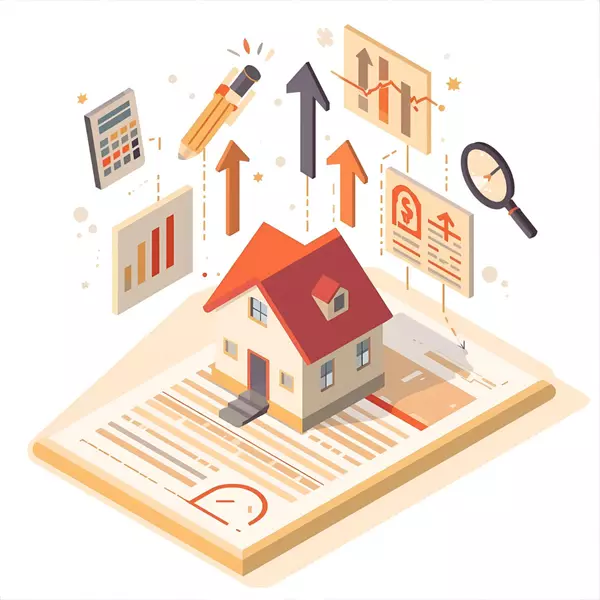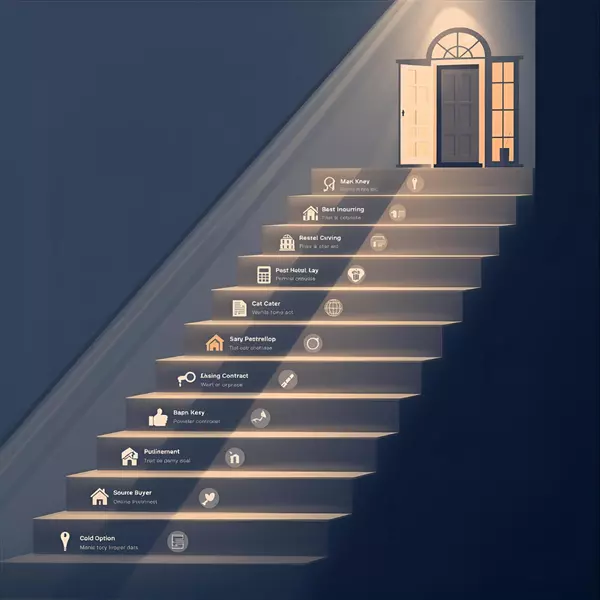How to Decide If You’re Ready to Buy a Home
How to Decide If You’re Ready to Buy a Home 🏡🔑
Introduction: Is Now the Right Time for You to Buy?
Are you dreaming of owning a home but unsure if now is the right time? Buying a home is one of the biggest financial decisions you’ll ever make, and it’s crucial to know if you’re truly ready before taking the plunge.
How do you know if you’re ready? It all comes down to your financial situation, lifestyle goals, and the real estate market.
In this guide, we’ll walk you through:
✅ How to assess your financial readiness
✅ The lifestyle factors that impact homeownership
✅ How to evaluate the real estate market
✅ Red flags that indicate you might want to wait
By the end, you’ll have a clear roadmap to determine if now is the right time to buy. Let’s dive in! 🚀
1. Assessing Your Financial Readiness
Before buying a home, you need to get your finances in order to ensure you can handle the costs of homeownership.
🔹 Step 1: Evaluate Your Savings
You’ll need more than just a down payment. Buying a home comes with additional costs:
✔ Closing Costs: Typically 3%-5% of the purchase price.
✔ Moving Expenses: Hiring movers, storage, and new furniture.
✔ Emergency Fund: Home repairs can happen unexpectedly.
📌 Example: If you’re buying a $300,000 home, closing costs could range from $9,000 - $15,000.
🔹 Step 2: Check Your Credit Score
Your credit score plays a huge role in determining your mortgage rate and loan approval.
✔ A score of 680+ gets you better interest rates.
✔ Below 620? Work on improving your score before applying.
📌 Pro Tip: Check your credit report for errors and pay off outstanding debts to boost your score.
🔹 Step 3: Understand Your Debt-to-Income Ratio (DTI)
Lenders use DTI to determine how much mortgage you can afford.
📌 Formula:
(Total monthly debt payments ÷ Gross monthly income) x 100 = DTI %
✔ Lenders prefer a DTI below 36% to approve a mortgage.
📌 Example: If you earn $5,000/month, keep total monthly debt under $1,800.
🔹 Step 4: Get Pre-Approved for a Mortgage
A pre-approval letter from a lender tells you:
✔ How much you can afford.
✔ What your monthly mortgage payment will look like.
✔ Gives you an advantage over other buyers in competitive markets.
📌 Pro Tip: A pre-approval strengthens your offer when negotiating with sellers!
2. Considering Your Lifestyle and Goals
Buying a home isn’t just about finances—it’s also about your long-term plans and lifestyle needs.
🔹 Step 1: Evaluate Your Long-Term Plans
✅ Are you planning to stay in the area for at least 3-5 years?
✅ Do you see yourself growing in this home (family, work, etc.)?
📌 Pro Tip: If you plan to move within a couple of years, renting might be the smarter option.
🔹 Step 2: Consider Your Current & Future Needs
Think about what you need now vs. what you might need later.
✔ Family Planning: Need extra bedrooms for future kids?
✔ Commute: Is the home close to work, schools, or amenities?
✔ Lifestyle Needs: Do you want a yard, garage, or home office?
📌 Example: A couple planning for kids may prioritize homes near top-rated schools.
🔹 Step 3: Assess Your Stability
✅ Do you have a stable job and reliable income?
✅ Are you ready for the responsibilities of homeownership (maintenance, repairs, taxes)?
📌 Pro Tip: If your job is uncertain or you’re not ready for upkeep, waiting might be the better option.
3. Understanding the Real Estate Market
🔹 Step 1: Research Local Market Trends
Ask yourself:
✔ Are home prices rising, stable, or declining?
✔ Is it a buyer’s market (more homes, lower prices) or seller’s market (higher demand, bidding wars)?
📌 Example: In Saskatoon, certain neighborhoods have seen steady appreciation over the past few years.
🔹 Step 2: Consider Interest Rates
📌 Why It Matters: Higher interest rates reduce your buying power, while lower rates make mortgages more affordable.
✔ Locking in a low rate can save you thousands over the life of your loan.
📌 Pro Tip: Even a 1% increase in mortgage rates can add hundreds to your monthly payment!
🔹 Step 3: Work with a Real Estate Agent
A great real estate agent helps you:
✔ Analyze market trends & home values.
✔ Find homes that match your budget & lifestyle.
✔ Negotiate to get you the best deal possible.
📌 Pro Tip: I provide in-depth market insights in Saskatoon—let’s discuss your options!
4. Red Flags That May Indicate You’re Not Ready
If any of these apply to you, it might be best to wait before buying:
🚩 Limited Savings – If you’re struggling to save for a down payment or emergency fund, you may want to hold off.
🚩 High Debt Levels – If your debt-to-income ratio is above 43%, focus on paying down debt first.
🚩 Uncertainty About Your Future – If you’re unsure about your job, location, or long-term plans, consider waiting until things are more stable.
📌 Pro Tip: It’s better to wait and buy smart than rush and regret your purchase!
Final Thoughts: Are You Ready to Buy?
Deciding if you’re ready to buy a home isn’t just about wanting a house—it’s about financial readiness, lifestyle stability, and understanding the market.
📊 Want expert advice on your home-buying readiness?
I can help you:
✔ Analyze your financial situation
✔ Find homes that fit your lifestyle & budget
✔ Navigate the market & make a smart purchase
📞 Call me, Jack Bouvier, at (306) 370-6179 or check out the links below!
Let’s find out if now is the right time for you to buy your dream home! 🚀
Categories
Recent Posts










GET MORE INFORMATION


